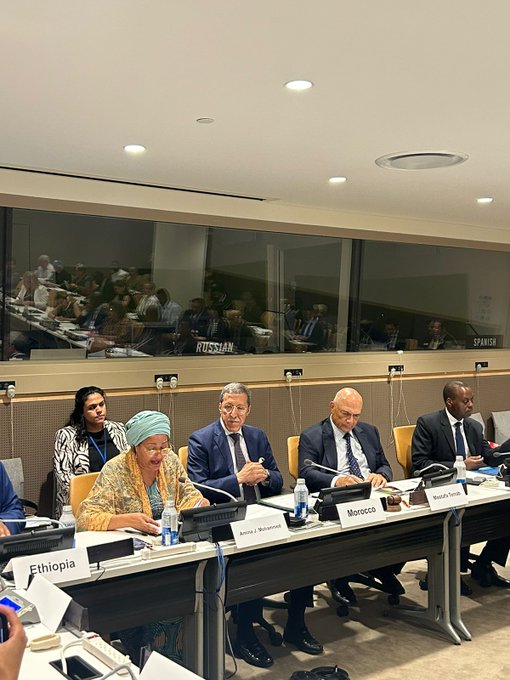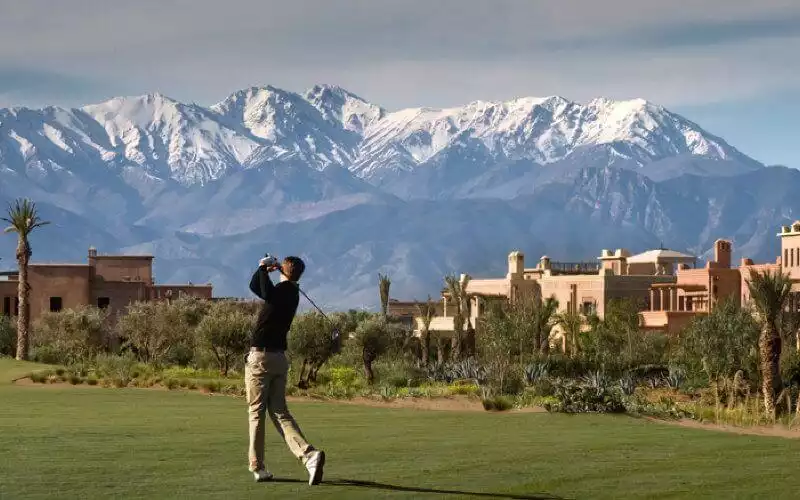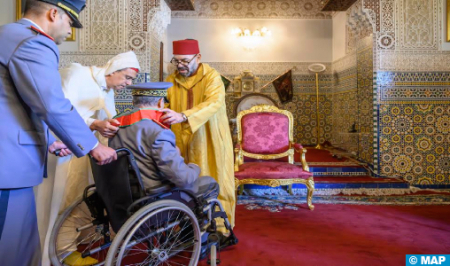Morocco’s Permanent Mission to the United Nations in New York and the OCP Group jointly organized a high-level event on the food security in Africa, as part of the High-Level Political Forum of the UN Economic and Social Council (ECOSOC) on Sustainable Development taking place July 8-17.
The meeting, held under the theme “Sustainable Development Goals in action. Shaping the Africa we want. Effective partnerships to eradicate poverty, build food sovereignty, mitigate climate change,” was co-sponsored by the Permanent Missions of Rwanda, Ethiopia, Nigeria, and Kenya. The exchanges that took place on this occasion allowed Africa’s voice to be heard by the international community.
This event kicked off with introductory remarks from the UN Deputy Secretary-General, Amina Mohammed and Morocco’s Ambassador to the UN, Omar Hilale, as well as a presentation by the Chairman and CEO of the OCP Group, Mostafa Terrab.
This initiative reflects Morocco’s firm attachment to its African depth and its unwavering commitment to the co-development and prosperity of Africa within the framework of a mutually beneficial South-South cooperation.
In his opening statement, Omar Hilale stressed that Morocco’s commitment to eliminating hunger and promoting sustainable agriculture emanates from a collective awareness of the challenge posed by food security in the world in general and on the African continent in particular, noting that this is why King Mohammed VI has placed food security at the heart of his strategic priorities for Africa.
The diplomat recalled Morocco’s keenness to promote investment in agriculture at home, as well as through south-south cooperation in Africa, which has more than half of the uncultivated arable land in the world. The Kingdom has undertaken to share its experience and good practices with African countries, he said.
This action is supported by the recommendations of the 2021 United Nations Food Systems Summit, which calls for strengthening partnerships and encouraging public-private investments to unlock the full potential of sustainable agriculture, the ambassador continued.
He noted that it is in this context that the multidimensional strategy of the OCP Group in the African continent comes into play. Through this presence, the Moroccan Group is today the main global supplier of phosphate products, but also the main African partner and provider of expertise in agriculture.
For his part, Mostafa Terrab stressed that Africa is embarking on a true “green revolution”, saying he is convinced that the accelerator of this “revolution” will be the continent’s capacity to produce its own fertilizers based on its abundant natural resources.
The Chairman and CEO of the OCP Group noted in this regard that while arable land per capita in the world is decreasing, 60% of this unused arable land on the planet is in Africa, deeming it necessary to change the perception vis-à-vis Africa’s role in terms of food security.
“Africa will have to play a positive role on a global scale in terms of food security,” he said, explaining that this security depends on the nutrition of the soil and plants. “Without fertilizers, we will only be able to produce half the food output we produce today,” Terrab said.
Wondering why Africa does not use fertilizers enough, he noted that the continent is the largest exporter of natural resources that go into manufacturing fertilizers, at a time when Africa was also a “net importer” of finished fertilizers.
“As a result, the African farmer has had the fundamental problem of having fertilizers that sometimes cost two to three times the price of fertilizers elsewhere, even if those fertilizers were made from the continent’s own natural resources,” he deplored.
This situation changed when the OCP Group deployed its multidimensional strategy and decided to produce fertilizers in Africa, allocating a significant quantity of these fertilizers to countries on the continent. Now 65% of fertilizers used in Africa are manufactured on the continent, he said.
He also exposed the OCP Group’s evolution since it made massive investments in the production of fertilizers, emphasizing that the Group has reached more than 30% of the global market share in fertilizer production.
This performance allowed the Group to rise to the number one position in terms of fertilizer production, he said, noting that OCP Group now has a capacity of 15 million tons and has earned a significant share of the market in finished fertilizers worldwide.
For Africa to ensure its food security, it is important, according to Mostafa Terrab, that it produces its own fertilizers, uses appropriate fertilizers in order to boost productivity, contribute to the achievement of SDG 13 on action climate and make soil health and nutrition planning affordable for smallholder farmers.
Speaking on this occasion, the UN Deputy Secretary-General welcomed the investments made by Morocco to develop the agricultural sector, through the promotion of local production, and the establishment of political frameworks that catalyze sustainable development and resilient food systems.
This dynamic has created jobs and strengthened the role of women in Moroccan society, she said, noting that sustainable food systems are not only about those who consume, but also about those who manage and who harvest from production to the table.
Africa is a region with enormous potential, representing 60% of the planet’s arable land, the UN official said, expressing her confidence that it is possible to overcome food insecurity and develop sustainable agricultural practices.
She stressed the importance of leveraging partnerships to realize the continent’s vision enshrined in Africa’s Agenda 2063, calling for keeping the promise not only for the SDGs and their acceleration, but for Africa desired by Africans as well.
The Permanent representatives to the UN of Ethiopia, Rwanda, Nigeria, Kenya, and Côte d’Ivoire who took part in the event have all welcomed the partnership existing between their respective countries and Morocco in the agricultural sector through the OCP Group.
This partnership with the Kingdom and the OCP Group has been instrumental in the process of transforming the agricultural sector in these African countries and helps to accelerate efforts to achieve the SDGs.
They also outlined the OCP Group’s contribution to ensure food security in sub-Saharan Africa, including through the establishment of fertilizer plants in some African countries, the promotion of new nutrient management practices, and farmers’ capacity building thanks to good agronomic and soil health practices and climate-smart agriculture.
Such initiatives help Africa ensure its food sovereignty and progress towards a more sustainable and inclusive future, they said.



